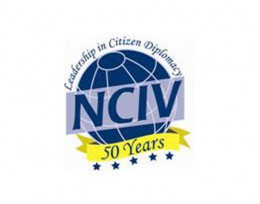
Wright State, recognized for its commitment to international relations, is a member of the acclaimed National Council for International Visitors.
Wright State will host a group of Russian educators next week who have come to the United States to study the latest innovations in STEM (science, technology, engineering and math) education.
The group of eight is composed mainly of high profile math and science educators from five Russian cities. For several of them, this will be their first trip to the United States. They will be accompanied by two interpreters.
“This is a wonderful opportunity for Wright State University through the International Visitor Leadership Program to put an international spotlight on its multiple efforts in the STEM fields,” said Stephen Foster, Ph.D., Wright State’s associate vice president for international affairs.
The group will visit three American cities to learn about STEM education. Their Dayton schedule will include tours of the Wright State Appenzeller Visualization Lab, the National Museum of the United States Air Force, and the ThinkTV studios.
The group will also participate in a panel discussion with experts from Wright State’s College of Engineering and Computer Science and College of Science and Mathematics.
Throughout their stay, the group will meet with educators from Wright State, the Dayton Regional STEM School (DRSS) and Miami Valley high schools.
“The visitors will have opportunities to meet individuals who are actively engaged in exciting research and employing unique teaching methods,” said Foster. “They will be able to take back and share with their colleagues back home very positive images of WSU and the Miami Valley.”
They will explore a number of STEM topics during their activities including:
- How the American education system is organized
- How to design effective STEM curricula
- How the private sector can play a role in promoting and improving STEM education
- How to engage young people through science fairs, outreach programs and competitions
- How to develop programs that support gifted students in pursuing advanced interests in STEM fields
- How to increase the number of students from minority and underrepresented groups studying STEM fields
- How the U.S. military supports STEM education
“The Dayton Regional STEM School and Wright State are committed to making a difference in our region not only through direct STEM instruction, but by sharing our knowledge about what works with others,” said Gregory Bernhardt, Ed.D., president of the DRSS board of trustees. “We are delighted to welcome a delegation of STEM educators to WSU and DRSS and to enter two days of conversation about the best of STEM education in the U.S. and in Russia.”
Though Wright State has been welcoming foreign guests to its campus for decades, this is the first delegation that has visited the university as part of the State Department’s International Visitor Leadership Program (IVLP).
The program brings foreign leaders and experts to the United States for cultural and intellectual exchange. Host institutions are members of the National Council for International Visitors (NCIV), which Wright State joined earlier this year.
The NCIV’s nationwide network includes more than 90 community organizations as well as program agencies, associate members and individuals. Only 7 percent of all NCIV members are universities.
“Sharing information on our innovative STEM programs is a great way to initiate the Wright State International Visitors Program,” said Joy Ndiangui, program coordinator for the Dayton Council on World Affairs.
“The program gives us an opportunity to showcase our community and build relationships that provide unique and potential partnerships globally,” she said.

 Cosmic collection
Cosmic collection  Wright State revives student-faculty collaborative writing journal
Wright State revives student-faculty collaborative writing journal  Fulfilling dreams
Fulfilling dreams  Wright State alumna Nicole Scherzinger wins top British theatre award as star of ‘Sunset Boulevard’
Wright State alumna Nicole Scherzinger wins top British theatre award as star of ‘Sunset Boulevard’  Healthy competition
Healthy competition 